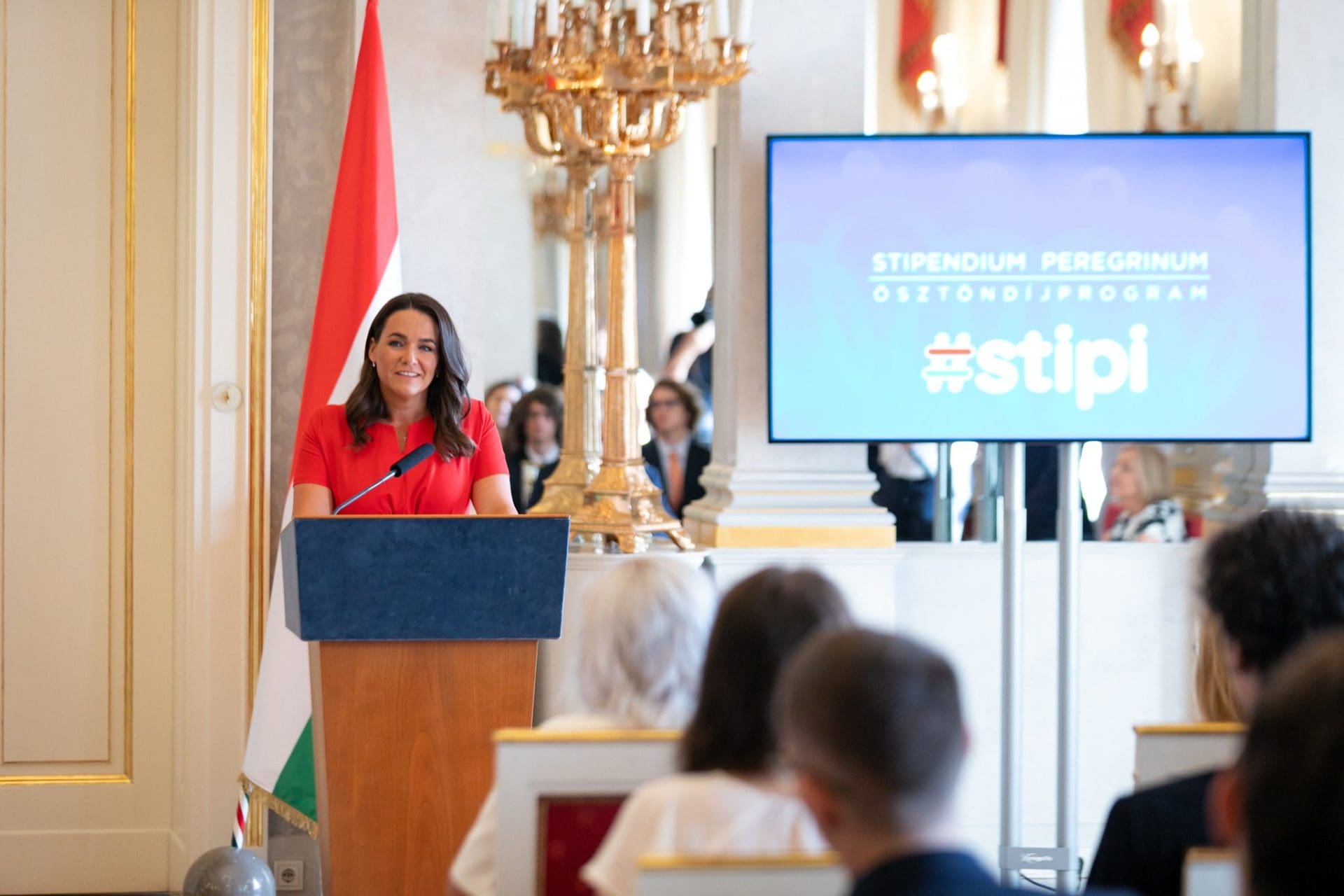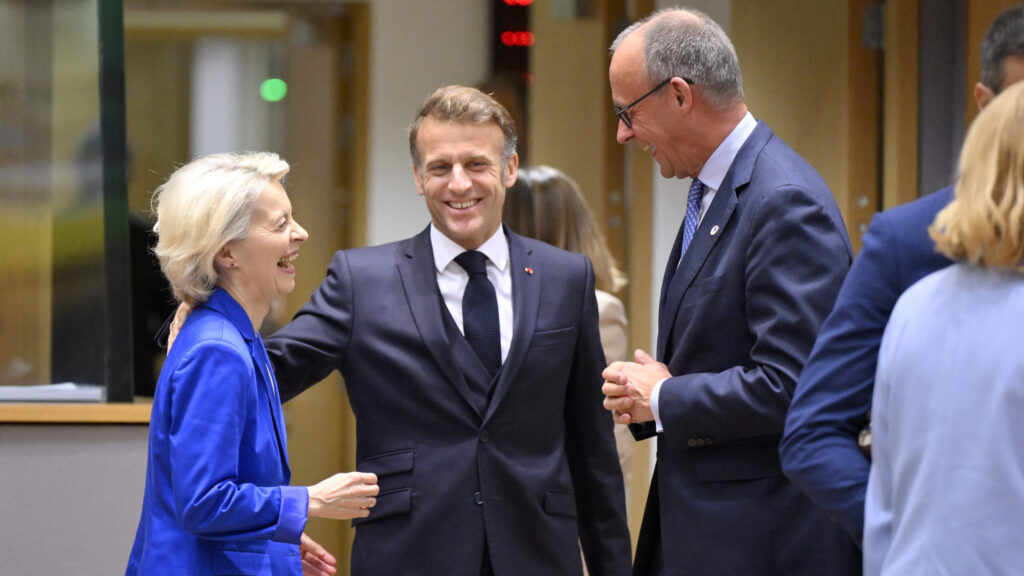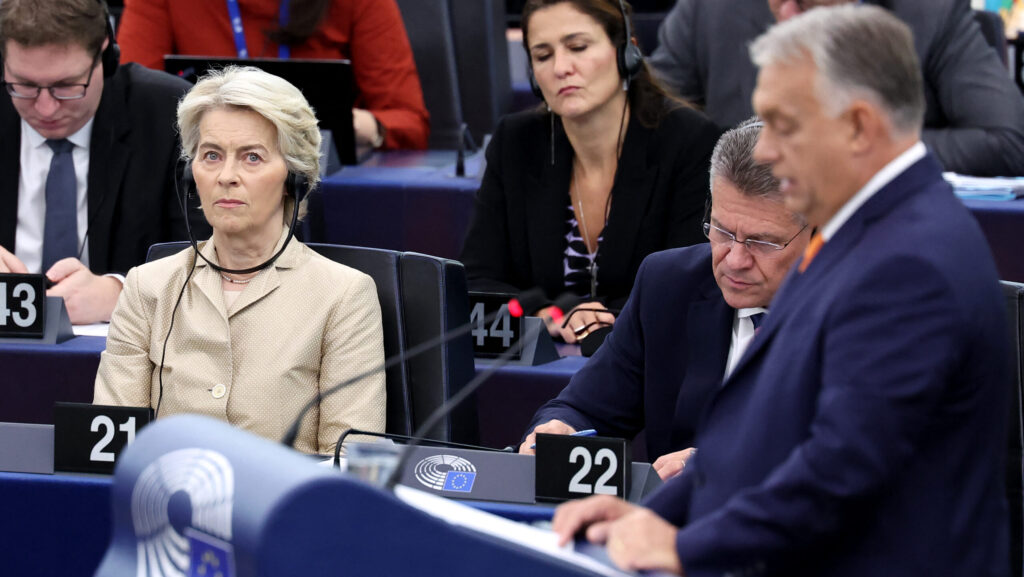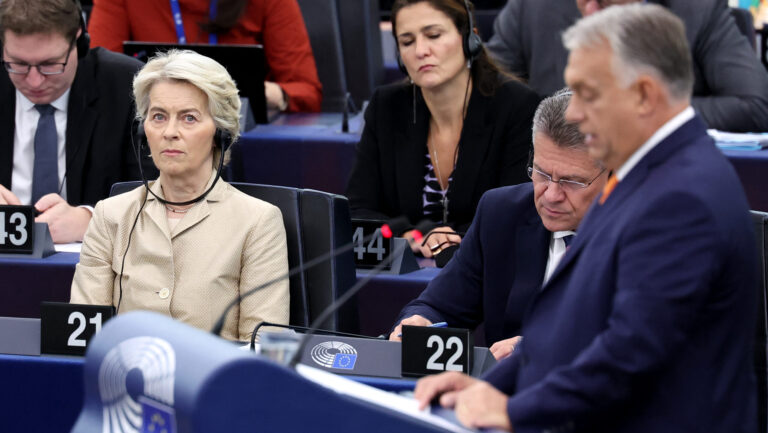Katalin Novák is supported by over 52 per cent of Hungarians, according to a survey conducted by Nézőpont. Those who are unhappy with her performance make up about on third of the poll’s respondents.
High Numbers in Support
The institute described President of the Republic Novák as ‘garnering a large number of supporters despite not being known by many’. The research focused on her first 100 days of office, exploring her popularity, while also offering explanations as to why she is favourably viewed by many.
Special Attributes
‘Serving the first 5 per cent of her 5-year tenure, Katalin Novák is not too widely known among the population. 53 per cent were able to name her as the head of state. Of these, more than half (52 per cent) believes that Ms Novák is doing a good job as President, while less then one third of those asked (30 per cent) thinks otherwise,’ Nézőpont said.
‘This means on the one hand that the political left’ s anti-Novák campaign failed, and on the other, that once awareness of the President increases, her popularity is also likely to grow. Her symbolic gestures, her communication and the themes she emphasises are all likely to be received positively by the overwhelming majority of society,’ the institute summarised.
Nézőpont said Ms Novák is building her presidency on the traditions established by her predecessors, adapting elements from their time in office, but at the same time she is also introducing novel approaches to those traditions. ‘She is young, she is female, and as a mother faces the everyday challenges of raising children. These three attributes define her and make her unique among all previous heads of state,’ they added.
Inspired by Those Who Came Before
The institute wrote that her general character as head of state is inspired by previous president Árpád Göncz. In being open about her faith she is following the example of her predecessor Ferenc Mádl. As Nézőpont highlighted, her inauguration marked the first time that Catholic, Calvinist, Lutheran and Jewish religious leaders alike asked for God’s blessing on the new head of state. The think tank also added that a major achievement of her first 100 days in office is that she will soon be received by the Pope in the Vatican. In expressing her intention to be Hungary’s number one emissary abroad, Ms Novák is emulating former president Pál Schmitt, Nézőpont remarked.
They emphasized that it is no coincidence that her first diplomatic trip abroad was to Poland to meet her counterpart, Andrzej Duda, and Mateusz Morawiecki, the prime minister. In Poland, she emphatically condemned the Russian aggression, while at the same time she urged the European Commission to transfer the funds owed to Poland and Hungary.
President Novák’s five-point plan as head of state was also analysed. Nézőpont noted that similarly to ex-president László Sólyom, Ms Novák is committed to representing values outside of politics as well. ‘This is well shown in her plans to support Hungarian families, and her pledge to help families “have the children they would like to have, help to ensure that all children grow up safely, since our future is in our children,’ Nézőpont underscored.
A Balanced Position
‘While in the first 100 days of her presidency Katalin Novák did not veto any piece of legislation for constitutional or political reasons, she does not seem to have gone back on her pledge…to be an autonomous president,’ the institute noted.
Nézőpont reminded that Novák had voiced concerns about the fact that the 11th amendment to the constitution, which established that general elections are to be held on the same day as the European parliamentary elections. Although Novák did suggest that in her view, there was no compelling argument that justified the amendment, she also made it clear that as head of state she had no power to veto amendments to the constitution.
‘Overall, her initial time in office does not tip the scales in any direction. It is more a position of balance, rather than counterbalance (in terms of her relationship with the government) and her decisions have not been influenced by pressure from the government, the media, or the opposition,’ Nézőpont concluded.
Katalin Novák is supported by over 52 per cent of Hungarians, according to a survey conducted by Nézőpont. Those who are unhappy with her performance make up about on third of the poll’s respondents.
High Numbers in Support
The institute described President of the Republic Novák as ‘garnering a large number of supporters despite not being known by many’. The research focused on her first 100 days of office, exploring her popularity, while also offering explanations as to why she is favourably viewed by many.
Special Attributes
‘Serving the first 5 per cent of her 5-year tenure, Katalin Novák is not too widely known among the population. 53 per cent were able to name her as the head of state. Of these, more than half (52 per cent) believes that Ms Novák is doing a good job as President, while less then one third of those asked (30 per cent) thinks otherwise,’ Nézőpont said.
‘This means on the one hand that the political left’ s anti-Novák campaign failed, and on the other, that once awareness of the President increases, her popularity is also likely to grow. Her symbolic gestures, her communication and the themes she emphasises are all likely to be received positively by the overwhelming majority of society,’ the institute summarised.
Nézőpont said Ms Novák is building her presidency on the traditions established by her predecessors, adapting elements from their time in office, but at the same time she is also introducing novel approaches to those traditions. ‘She is young, she is female, and as a mother faces the everyday challenges of raising children. These three attributes define her and make her unique among all previous heads of state,’ they added.
Inspired by Those Who Came Before
The institute wrote that her general character as head of state is inspired by previous president Árpád Göncz. In being open about her faith she is following the example of her predecessor Ferenc Mádl. As Nézőpont highlighted, her inauguration marked the first time that Catholic, Calvinist, Lutheran and Jewish religious leaders alike asked for God’s blessing on the new head of state. The think tank also added that a major achievement of her first 100 days in office is that she will soon be received by the Pope in the Vatican. In expressing her intention to be Hungary’s number one emissary abroad, Ms Novák is emulating former president Pál Schmitt, Nézőpont remarked.
They emphasized that it is no coincidence that her first diplomatic trip abroad was to Poland to meet her counterpart, Andrzej Duda, and Mateusz Morawiecki, the prime minister. In Poland, she emphatically condemned the Russian aggression, while at the same time she urged the European Commission to transfer the funds owed to Poland and Hungary.
President Novák’s five-point plan as head of state was also analysed. Nézőpont noted that similarly to ex-president László Sólyom, Ms Novák is committed to representing values outside of politics as well. ‘This is well shown in her plans to support Hungarian families, and her pledge to help families “have the children they would like to have, help to ensure that all children grow up safely, since our future is in our children,’ Nézőpont underscored.
A Balanced Position
‘While in the first 100 days of her presidency Katalin Novák did not veto any piece of legislation for constitutional or political reasons, she does not seem to have gone back on her pledge…to be an autonomous president,’ the institute noted.
Nézőpont reminded that Novák had voiced concerns about the fact that the 11th amendment to the constitution, which established that general elections are to be held on the same day as the European parliamentary elections. Although Novák did suggest that in her view, there was no compelling argument that justified the amendment, she also made it clear that as head of state she had no power to veto amendments to the constitution.
‘Overall, her initial time in office does not tip the scales in any direction. It is more a position of balance, rather than counterbalance (in terms of her relationship with the government) and her decisions have not been influenced by pressure from the government, the media, or the opposition,’ Nézőpont concluded.







